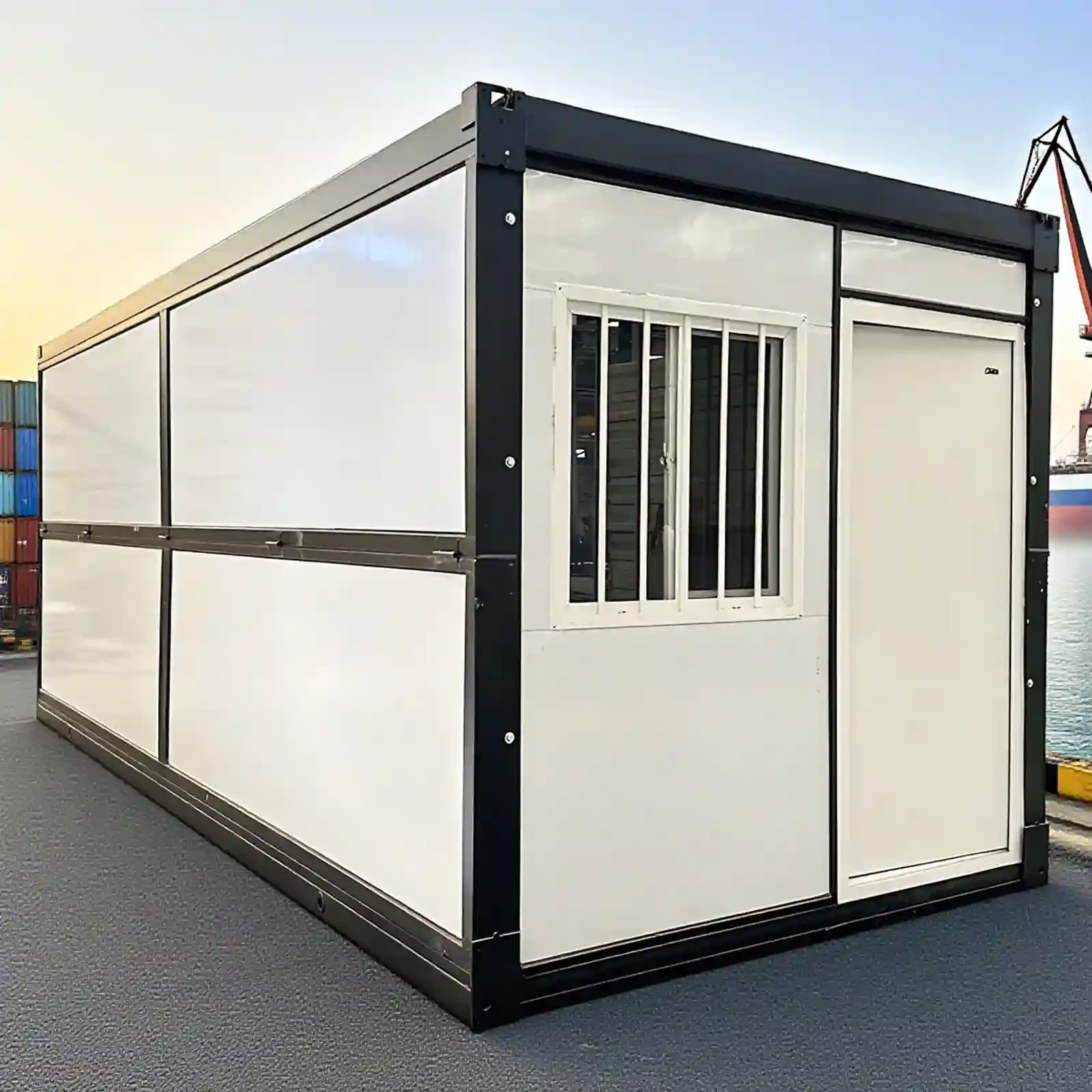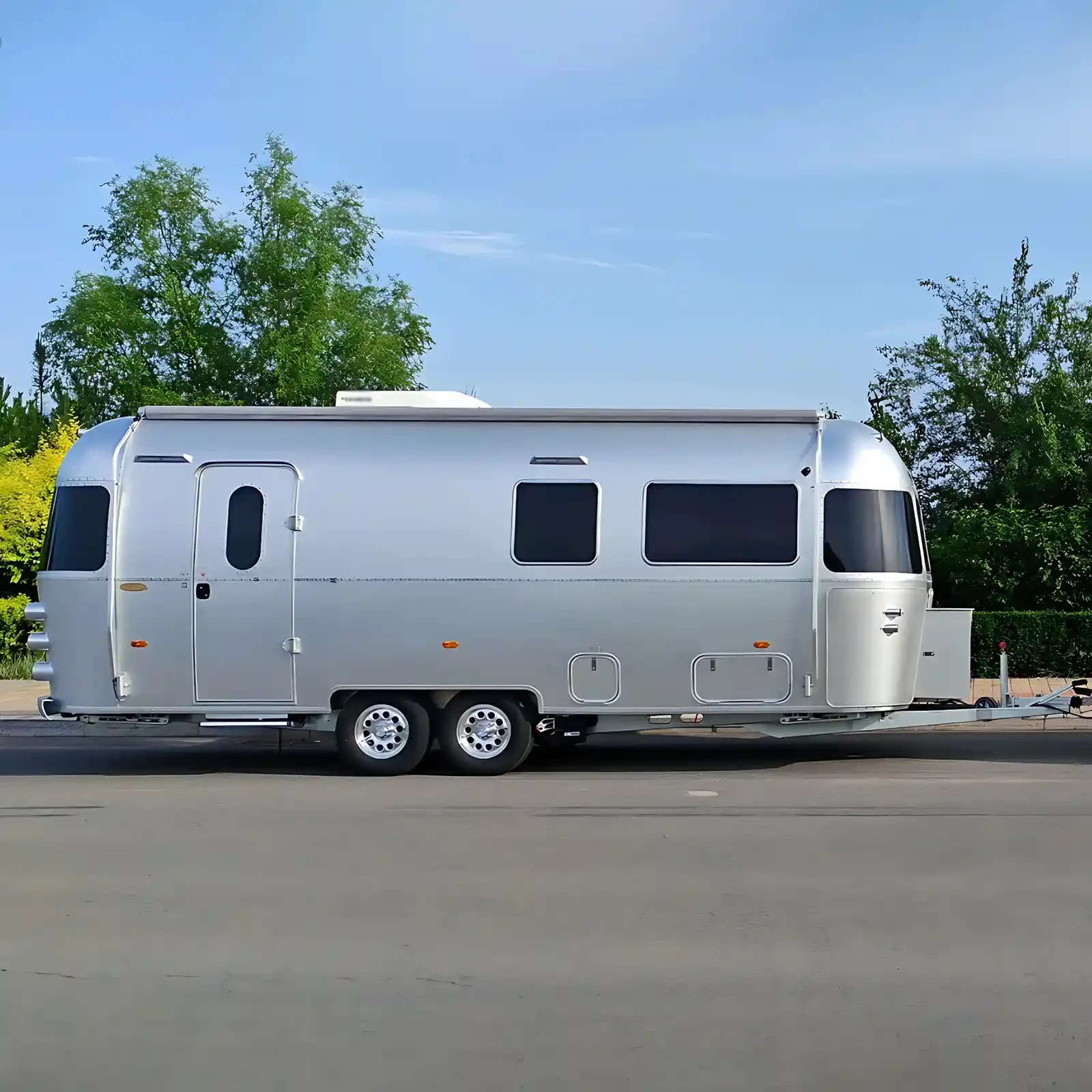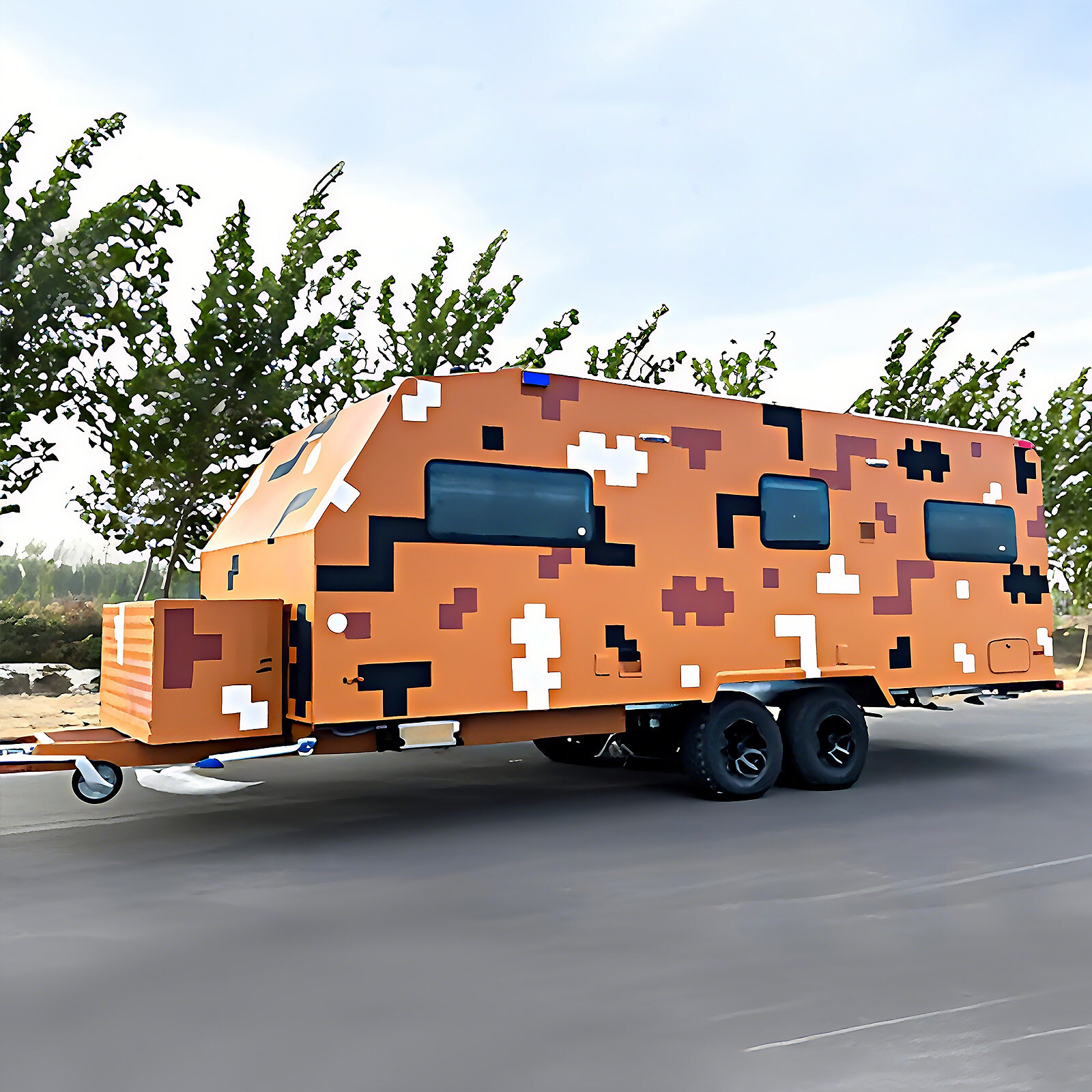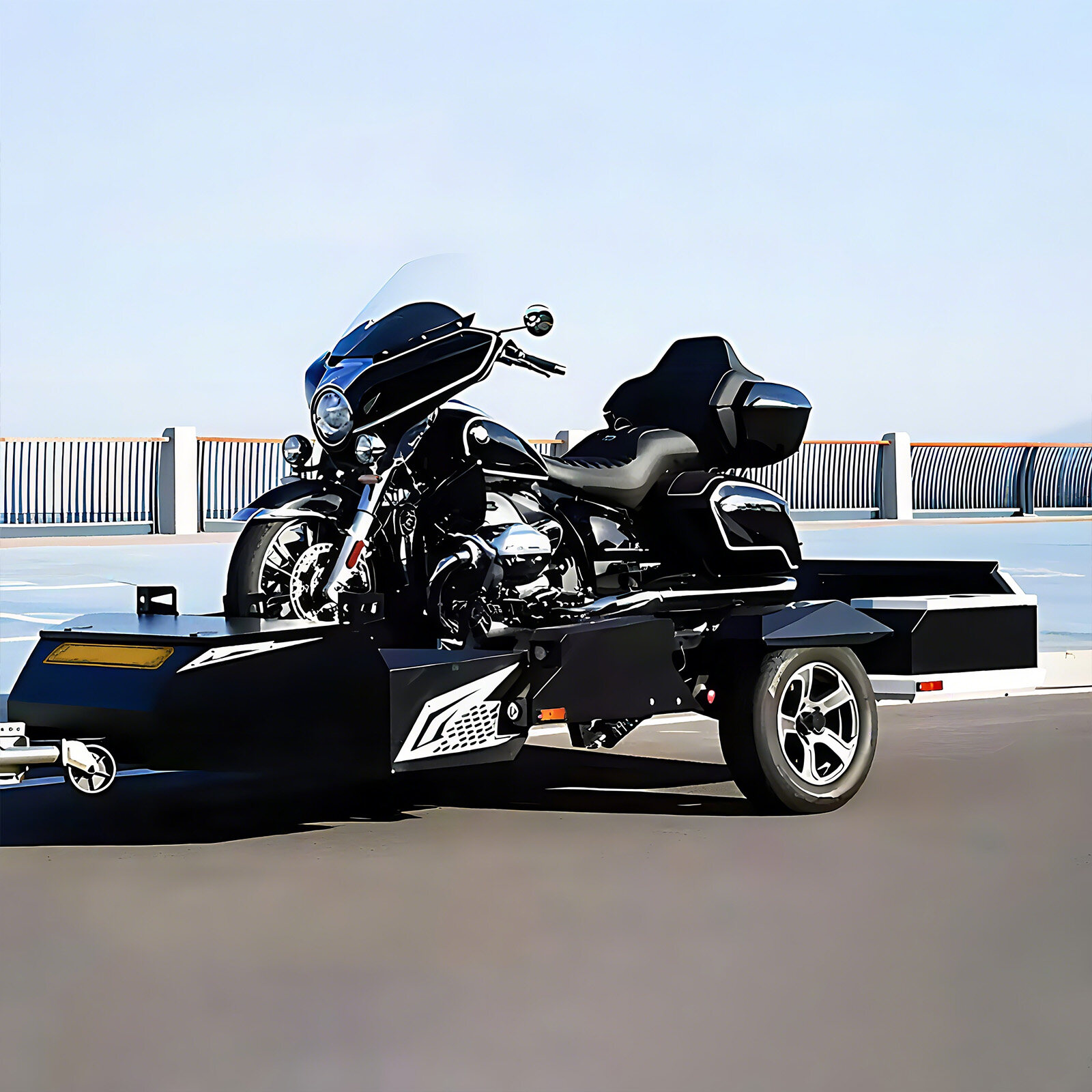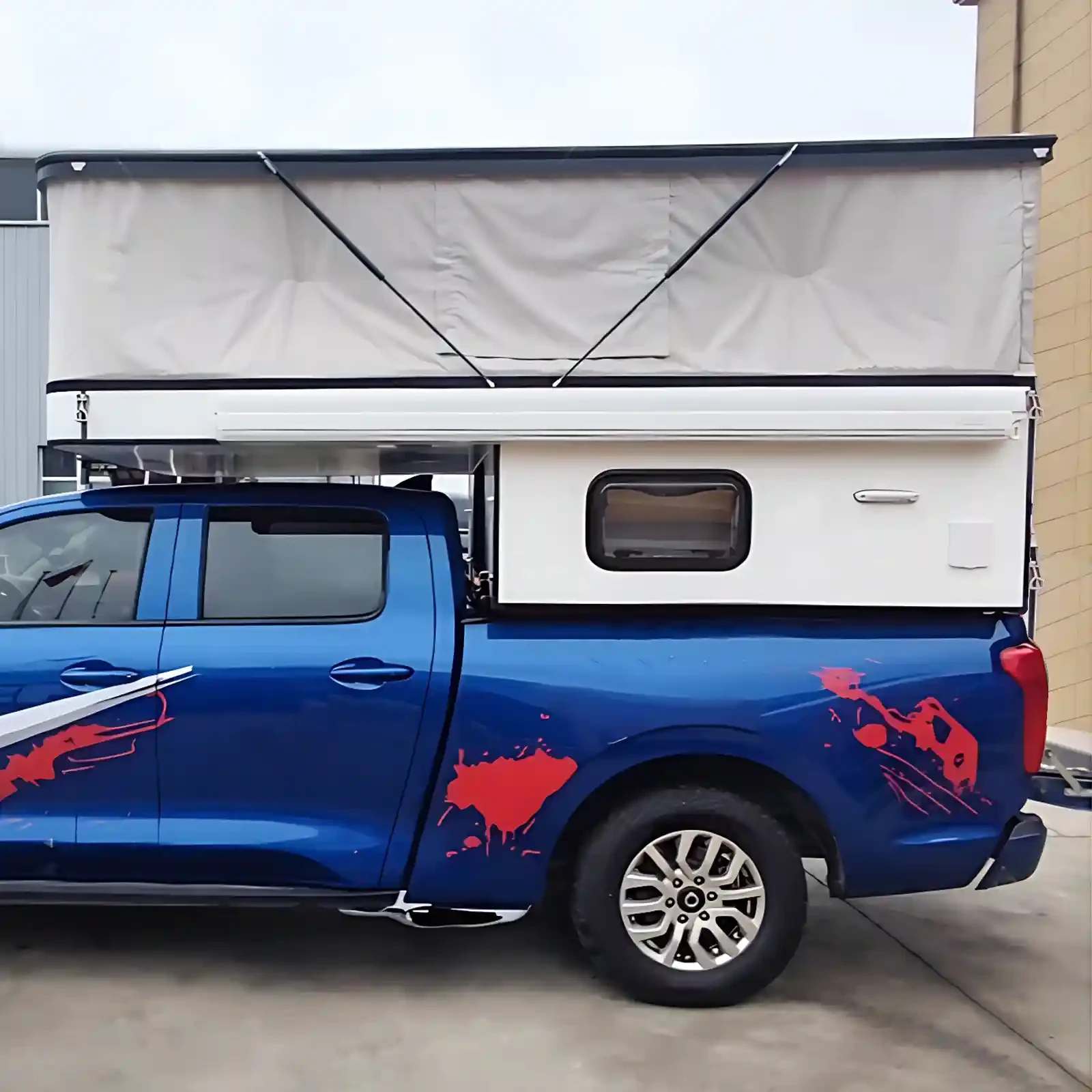What car can tow an RV? Actually, any ordinary family sedan can, and it's legal. In Europe and the United States, cars manufactured there are marked with the vehicle's towing capacity, but domestically manufactured cars don't. The specific weight of an RV you can tow is a matter of personal interpretation. RV sellers in China often exaggerate. They might tell you a 1.5-liter RV can tow an RV over a ton, and they're right. Flat asphalt roads are no problem, but what about mountain roads with hills and potholes? And can it be towed for extended periods? They don't explain whether it will damage the vehicle's frame or body, because their sole concern is selling the car. Buying an RV is their goal, and they want to alleviate your concerns.
According to Article 56 of the "Regulations for the Implementation of the Road Traffic Safety Law of the People's Republic of China": (1) Trucks, semi-trailer tractors, and tractors are only allowed to tow one trailer. The trailer's lighting, signaling, braking, coupling, and safety features must comply with national standards. (2) Small passenger cars are only allowed to tow caravans or trailers with a gross weight of 700 kg or less. Trailers may not carry passengers. (3) The load capacity of a trailer towed by a truck may not exceed the load capacity of the truck itself.
The car manufacturer doesn't offer any recommendations, so how much RV can be towed? As an RV seller, I've summarized some of these for reference only. Consider the following factors when deciding whether towing is appropriate: What are the road conditions where you're going? If the roads are flat, a 2.0-liter engine can tow RVs under 1.2 tons. However, if the roads are mountainous and the conditions are poor, it's recommended not to tow more than 700 kg. This recommendation is primarily for vehicle protection, assuming no damage is done. If you absolutely must tow, and the car breaks down, it doesn't matter; you'll throw it away after a year or two, and no one will care how you tow it. For poor mountain roads, a diesel or four-wheel drive vehicle is recommended.
It is recommended that household gasoline cars tow RVs, and the requirements for diesel cars and four-wheel drive vehicles are appropriately relaxed.
The 1.5 displacement should not exceed 600 kg.
The 1.8 displacement should not exceed 750 kg.
The 2.0 displacement should not exceed 900 kg.
The displacement of 3.0 should not exceed 1.2 tons.
The larger your displacement, the smaller the towed RV, the better. This will have less impact on the vehicle speed and fuel consumption. It doesn't matter if a small horse pulls a big cart once or twice. If you insist on arguing, I have no choice. It's just like staying up late occasionally doesn't do much harm to your body, but if you stay up late every day, you will understand when you get older. Don't wait until the end for such things. What do you think?
The last two pictures were taken by me at the highway toll station, so there is no problem on the highway. Regarding the toll, since I have installed ETC, all the charges are normal. Only some small stations charge a higher category manually. From Beijing to Hainan, I had to pay the fees manually three times, all at small stations, and one toll station did not let me enter the highway.

 USD
USD
 GBP
GBP
 EUR
EUR

